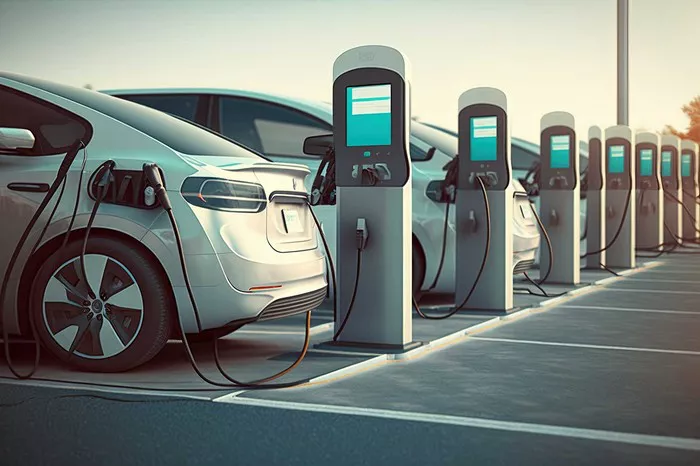The automotive industry is rapidly embracing electrification as manufacturers prepare to release an exciting lineup of electric vehicles (EVs) in response to the growing demand for sustainable transportation. From luxury brands to mass-market producers, automakers are investing heavily in new electric models, signaling a major shift in the industry’s future direction.
BMW’s Latest Innovation: The 2025 2 Series Gran Coupe
BMW is at the forefront of this electrification movement with the upcoming 2025 2 Series Gran Coupe. This updated model features significant aesthetic and performance upgrades, while retaining the signature design elements that have defined the 2 Series. Built on the UKL platform shared with Mini, the 2025 Gran Coupe sports a refreshed front end, complete with BMW’s updated signature grille, and a redesigned rear with new LED tail lamps and a relocated license plate on the trunk lid.
Under the hood, the 228 xDrive Gran Coupe boasts a turbocharged 2.0-liter inline-4 engine, delivering 241 horsepower and 295 lb-ft of torque. For enthusiasts, the M235 xDrive Gran Coupe steps up performance with 312 horsepower, enabling the vehicle to accelerate from 0-60 mph in just 4.7 seconds, thanks to its advanced 7-speed dual-clutch transmission. Inside, BMW has modernized the cabin with a curved display running on the latest Operating System 9, alongside premium features such as a 12-speaker Harmon/Kardon audio system, heated front seats, and cutting-edge safety features like lane-keeping assist and front collision avoidance. With these upgrades, the 2 Series Gran Coupe is set to compete with rivals such as the Mercedes-Benz CLA-Class and Audi A3.
Bentley’s Push into the EV Market
Luxury automaker Bentley is preparing to enter the electric vehicle market with its first EV, scheduled for release in 2026. This new luxury SUV, which will measure around 197 inches, is slightly smaller than the brand’s Bentayga. Bentley’s CEO, Frank-Steffen Walliser, has reassured loyal customers that despite the shift to electric powertrains, the brand’s commitment to luxury and ride quality will remain unchanged.
One of Bentley’s primary focuses with its electric vehicle is fast charging, aiming to maintain the luxurious driving experience that the brand is known for. The company is also addressing concerns about the loss of the traditional engine sound by exploring ways to simulate the distinct noise of a combustion engine, ensuring the brand’s signature driving experience is preserved.
Bentley is also revising its carbon neutrality goals, extending its target for full carbon neutrality from 2030 to 2035. The company’s “Beyond 100 Plus” strategy includes plans for sustainable manufacturing and other environmentally conscious initiatives, aligning with the growing demand for green automotive solutions.
Nissan’s Ariya EV: Balancing Performance and Functionality
Nissan’s Ariya EV has garnered attention for its impressive long-range capabilities and stylish design. As the company continues to roll out its electric vehicles, the Ariya has proven itself to be both functional and aesthetically pleasing. The model is equipped with advanced infotainment and driver-assistance technologies, making it a competitive choice in the growing EV market.
However, Nissan is also facing challenges. The company recently announced a major restructuring, including the elimination of 9,000 jobs, as part of efforts to stabilize the organization amidst declining sales. The CEO’s pay has also been reduced, raising questions about the company’s strategies as it navigates the transition to electric mobility.
Hyundai’s Vision for Hydrogen and Electric Vehicles
Looking ahead, Hyundai is pushing the boundaries of green vehicle technology with the INITIUM, a concept hydrogen-powered vehicle that blends the benefits of both electric and hydrogen technologies. The INITIUM aims to offer faster refuel times and longer ranges compared to traditional electric vehicles, positioning hydrogen as a potential key player in the future of clean transportation.
Hyundai’s commitment to diverse energy sources is evident, as the company looks beyond battery-electric power and explores hydrogen’s potential role in shaping the future of eco-friendly vehicles.
The Hybrid Option: A Transitional Step for Many Brands
While the automotive industry shifts toward full electrification, hybrid vehicles remain an important part of the transition. Many manufacturers, including Bentley, are offering hybrid models as part of their move toward zero-emissions lineups. Bentley’s Flying Spur Hybrid, for example, combines luxury and performance with eco-friendly technology, catering to consumers seeking greener alternatives without compromising on quality.
A Thrilling Future Ahead for Electric Vehicles
The shift to electric vehicles is well underway, and consumers can expect more choices than ever in the coming years, ranging from affordable models to high-end luxury EVs. As automotive giants like BMW, Bentley, Nissan, and Hyundai lead the charge, the market is set to evolve, with innovation at the forefront.
Even traditional manufacturers such as Ford are embracing electrification, with plans to electrify its iconic Mustang model. The competition is fierce, with each company vying to stay relevant in an era increasingly defined by environmental sustainability and cutting-edge technology.
With groundbreaking advancements on the horizon, the future of the automotive industry is electrifying. As manufacturers race to deliver innovative, eco-friendly vehicles, the road ahead promises to be filled with exciting developments and new possibilities for drivers everywhere.
Related topics:

